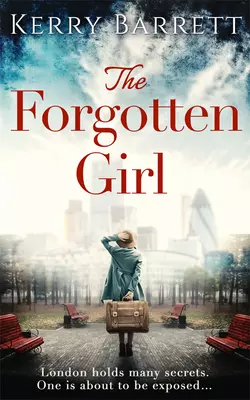The Forgotten Girl

Kerry Barrett
Тип: электронная книга
Жанр: Современная зарубежная литература
Язык: на английском языке
Стоимость: 292.56 ₽
Издательство: HarperCollins
Дата публикации: 07.05.2024
Отзывы: Пока нет Добавить отзыв
О книге: ‘A fantastic and engaging read. Kerry Barrett truly is a very talented author.’ – Babs (Goodreads)Two women. Two decades. One story.Fearne has landed her dream job to run Mode. Except the dream isn’t quite so rosy in reality, the print magazine is struggling and Fearne is determined to save it!In 1966, desperate to escape her life, Nancy moves to London with her brilliantly unpredictable friend Suze to achieve their dream of writing for Mode magazine together.For Mode to survive Fearne needs to recreate the magic of the early issues and she is on track to find Suze – Mode’s longest-serving editor. Unbeknownst to Fearne, what she uncovers might be the biggest story of her career…Loved The Forgotten Girl then don’t miss out on A Step in Time the emotional novel from Kerry Barrett – out now!What reviewers are saying about A Step in Time‘It’s all set against the backdrop of Strictly Stars Dancing, adding an extra element of glitz and glamour to the proceedings. This is a great book that I devoured in two sittings and it’s absolutely perfect for summer holidays or wintry days snuggled on the sofa.’ – Bab’s Bookshelf‘This was a really enjoyable, funny read… I recommend this book to fans of Strictly, and also to anyone who wants a feel good story with so much more depth to it than some I have read.’ – Fiona’s Book Reviews‘Sparkly, fun, witty and deeper than expected… There aren′t enough stars for this fun, deeper than expected witty and relaxing read. Highly recommended.’ – Michelle (Goodreads)